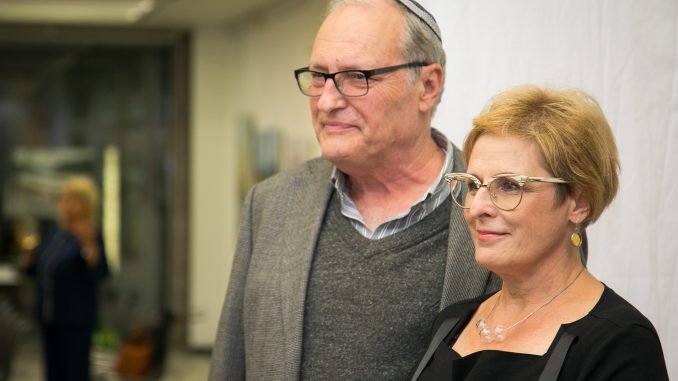
Writer and journalist Rūta Vanagaitė admits in a letter released on Friday that she was mistaken and regrets her “hasty and arrogant public comments” regarding resistance leader Adolfas Ramanauskas-Vanagas. She admits she was mistaken in her claims that the resistance leader attempted suicide, rather than having been tortured.
R. Vanagaitė’s reaction was brought on by an interview published by Delfi on Friday with historian Darius Juodis.
R. Vanagaitė’s letter:
“I did not wish for a scandal. I did not want to hurt the daughter of the famous partisan leader and her father’s memory. She suffered more than can be imagined. I did not wish to lose my and my family’s spiritual peace. I did not wish to lose all my books. I did.
My comments were released at the most unsuitable time possible – on the release day of a cheerful autobiography. Unlike conspiracy theories claims, this was completely coincidental and a great mistake of mine. It cost me dearly. The questions I raised carelessly and untimely regarding the partisan leader Adolfas Ramanauskas-Vanagas sounded like accusations to a hero of Lithuania and this raised great public outrage. My words were taken as an attack against Lithuania initiated by hostile forces. I did not expect such a reaction at all and am shocked by it.
I am also shocked by the facts that were revealed to the public by historian D. Juodis, who has studied the documents in detail, in his interview. I definitely did not know them. Not about the partisan leader’s relations with the KGB or his motives, not about the terrible and long torture he experienced. Today I openly admit that the opinion I expressed that Adolfas Ramanauskas-Vanagas experienced no torture, but injured himself, was completely mistaken, based on lies presented in the files in an attempt to mask the tortures. I am very sorry for my hasty and arrogant public comments.
I hope that the Lithuanian Special Archives files will all eventually be made available for review – agency and other NKVD and KGB files which I did not have the opportunity to review because they are only accessible to professionals.
Nevertheless in the face of this scandal I still believe that a mature open democratic society is one which can open all the pages of its history without censorship, not applying only the criteria of benefit. I believe that historians will appear in Lithuania who will reveal to the public the entire historical truth without fear and self-censorship. I believe that only with truth can an open society be free and resistance to hostile propaganda.
The famous semiotic Algirdas Julius Greimas, when asked what the Lithuanian nation needs to learn and what to shed answered: “To learn to look at itself critically and, what is most important, to withstand that critical look.”
Through this letter I am personally doing just that,” R. Vanagaitė writes.
Delfi reminds that R. Vanagaitė stated last week that supposedly one of the Lithuanian partisan leaders Adolfas Ramanauskas-Vanagas “is no hero”, was not tortured and may have collaborated with the KGB. She said she based this on KGB documents.
R. Vanagaitė and her partner, Nazi hunter Efraim Zuroff of the Jerusalem Simon Wiesenthal Centre also spoke of the supposed role of A. Ramanauskas-Vanagas during the Holocaust.
Meanwhile the Lithuanian Jewish Community distanced itself publically from the accusations that the head of partisans fighting against Soviet occupation A. Ramanauskas-Vanagas could have had anything to do with the Holocaust.
The community’s statement specifies that there is no data to confirm such claims.
Lithuanian historians are in unanimous agreement that A. Ramanauskas-Vanagas was brutally tortured to death by Soviet officers for fighting for Lithuanian freedom and there are no documents to indicate him participating in the Holocaust. Publically released reports show that A. Ramanauskas-Vanagas was castrated, his eye was put out and he entered a coma during the torture. Later the partisan leader was shot to death by the decision of Soviet officers.
The Alma Littera publishing house which published a number of books by R. Vanagaitė described the accusations as unacceptable and terminated any cooperation with her. The Lithuanian Jewish Community stated that it respects the publishing house’s right to enact and develop its business strategy, but described the decision to remove R. Vanagaitė’s books from sale as disproportionate.
The Seimas intends to declare 2018 A. Ramanauskas-Vanagas’ year to commemorate his centenary.

Be the first to comment